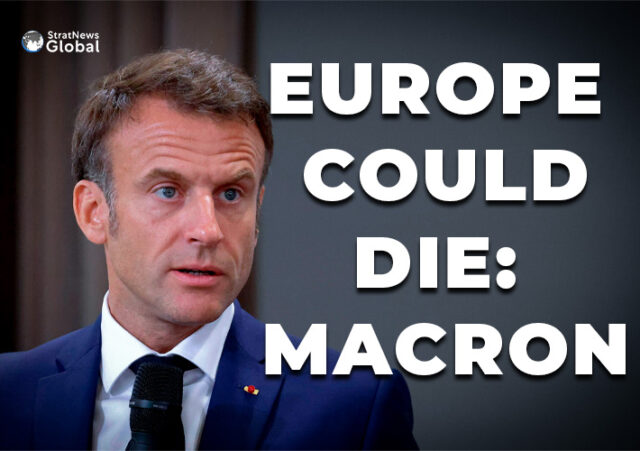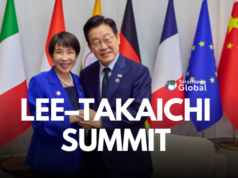French President Emmanuel Macron has appealed for stronger, more integrated European defences and said the continent must not become a vassal of the United States, as he outlined his vision for a more assertive European Union on the global stage.
With just three years left of his second and final term in office, and after losing his parliamentary majority in 2022, Macron, 46, wants to show his critics that he retains the energy and fresh thinking that helped propel him into the presidency in 2017 and that he has not become a lame duck leader.
“There is a risk our Europe could die. We are not equipped to face the risks,” Macron said in his speech at the Sorbonne University in Paris, warning that military, economic and other pressures could weaken and fragment the 27-nation EU.
Macron said Russia must not be allowed to win in Ukraine, and he called for a boost in Europe’s cybersecurity capacity, closer defence ties with post-Brexit Britain, and the creation of a European academy to train high-ranking military personnel.
“There is no defence without a defence industry… we’ve had decades of under-investment,” he said, adding that Europeans should give preference to buying European military equipment.
“We must produce more, we must produce faster, and we must produce as Europeans,” Macron said.
Europe “must show that it is never a vassal of the United States and that it also knows how to talk to all the other regions of the world”, he said.
Macron has long called for European “strategic autonomy” involving less reliance on the United States, a stance that has gained greater resonance in the face of Donald Trump’s renewed bid for the White House. Trump has often accused Europe of free loading on defence at the United States’ expense.
However, many EU officials believe there is currently no credible alternative to the US military umbrella, and some suspect Macron of pushing French industrial interests.
Macron said Europe also risks falling behind economically in a context where global free-trade rules are being challenged by major competitors, and he said it should aim to become a global leader in artificial intelligence, quantum computing, space, biotechnologies and renewable energy.
The EU should agree exemptions to its own competition rules so it can support firms in sectors such as AI and green energy in the face of “oversubsidies” by the United States and China, he said.
Europe needs less fragmented markets for energy, telecom and financial services, and must also cut red tape, he added.
The French leader hopes his speech will have the same impact as a similar address at the Sorbonne he made seven years ago that prefigured some significant EU policy shifts.
Since then, much has changed, with major geopolitical challenges including the war in Gaza, Russia’s invasion of Ukraine and growing China-US tensions.
Thursday’s speech was billed by Macron’s advisers as France’s contribution to the EU’s strategic agenda for the next five years. The agenda is due to be decided after the European elections, when EU leaders will haggle over the bloc’s top jobs.
With inputs from Reuters





